June 16, 2014 •
Ask the Experts – LDA Tracking and Reporting
Q. To streamline LDA tracking and reporting, our company includes 100 percent of our in-house lobbyists’ compensation as lobbying on our quarterly report. Is this a reasonable approach? A. The LDA does not contain any special tracking requirements for reporting […]
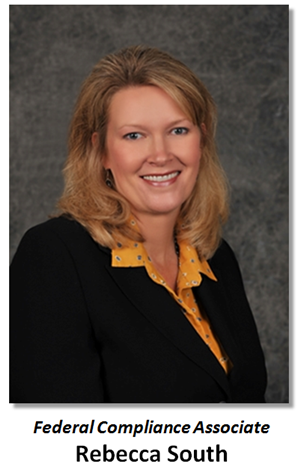 Q. To streamline LDA tracking and reporting, our company includes 100 percent of our in-house lobbyists’ compensation as lobbying on our quarterly report. Is this a reasonable approach?
Q. To streamline LDA tracking and reporting, our company includes 100 percent of our in-house lobbyists’ compensation as lobbying on our quarterly report. Is this a reasonable approach?
A. The LDA does not contain any special tracking requirements for reporting expenditures. Registrants employing in-house lobbyists are required to provide a “good faith estimate of the total expenses” of their lobbying activities. With the “good faith” standard as the back drop, an organization should determine whether including 100 percent of their lobbyists’ compensation meets that standard. Aside from the tax implications of including 100percent of compensation, typically, there is some time that is spent during the course of a quarter that is not defined as lobbying and varies from month to month depending on what issues are being addressed. Therefore, providing a good faith estimate, in most cases, will require a registrant to implement some sort of tracking process to meet the standard. In the event of an audit, the ability to demonstrate reasonable efforts to track and capture lobbying activity, and only lobbying activity, is an additional benefit.
You can directly submit questions for this feature, and we will select those most appropriate and answer them here. Send your questions to: marketing@stateandfed.com.
(We are always available to answer questions from clients that are specific to your needs, and we encourage you to continue to call or e-mail us with questions about your particular company or organization. As always, we will confidentially and directly provide answers or information you need.) Our replies to your questions are not legal advice. Instead, these replies represent our analysis of laws, rules, and regulations.
June 16, 2014 •
Georgia Commission Settles Retaliation Claims
The ethics commission has agreed to settle three retaliation claims for over $1.8 million. The claims are each related to an investigation of Gov. Nathan Deal involving 2010 campaign and personal finance reports. Under the terms, the commission’s former deputy, […]
 The ethics commission has agreed to settle three retaliation claims for over $1.8 million. The claims are each related to an investigation of Gov. Nathan Deal involving 2010 campaign and personal finance reports.
The ethics commission has agreed to settle three retaliation claims for over $1.8 million. The claims are each related to an investigation of Gov. Nathan Deal involving 2010 campaign and personal finance reports.
Under the terms, the commission’s former deputy, Sherry Streicker, will receive $1 million, former IT specialist John Hair will receive $410,000, and former staff attorney Elisabeth Murray-Obertein will receive $477,500. The settlements follow an April jury verdict awarding $700,000 plus fees to the commission’s former executive secretary, Stacey Kalberman, who argued her pay was slashed and her deputy’s position eliminated as they were preparing subpoenas in the Deal case.
Murray-Obertein, who arrived after the departures of Kalberman and Streicker, testified she was under pressure to get the Deal case resolved. Hair claimed LaBerge ordered him to alter, hide, and destroy documents related to the Deal investigation.
The commission has denied any wrongdoing and Deal has said he was not involved in any of the commission’s decisions or actions.
June 13, 2014 •
News You Can Use Digest – June 13, 2014
National: What Corrupt States Spend Their Money On Government Technology – Liz Farmer and Kevin Tidmarch (Governing Magazine) | Published: 6/6/2014 According to research published in Public Administration Review, states with higher levels of public corruption spend more money on […]

National:
What Corrupt States Spend Their Money On
Government Technology – Liz Farmer and Kevin Tidmarch (Governing Magazine) | Published: 6/6/2014
According to research published in Public Administration Review, states with higher levels of public corruption spend more money on highways and construction. The study found those projects and police programs provide the most opportunities for lawmakers to enrich themselves, and are positively correlated with state levels of corruption. Meanwhile, highly corrupt states also spend relatively less on health, education, and welfare, categories that were less susceptible to graft and bribery, found the report.
Federal:
Four Years Later, FEC May Finally Update Its Books with Citizens United Ruling
National Journal – Shane Goldmacher | Published: 6/8/2014
Sources said a bipartisan coalition of FEC commissioners is finally moving to update its regulations in the wake of the Supreme Court’s Citizens United ruling after years of stalemate. The proposed rules under consideration by commissioners are narrow in scope, mostly seeking to strip unconstitutional provisions from the books; the revisions would not include the stricter disclosure requirements that some Democrats have sought, said people involved in the matter. But the very fact the FEC is undertaking the effort at all is a significant development for an agency that has become synonymous with Washington gridlock and dysfunction.
From the States and Municipalities:
California – Calif. Senate Adopts New Ethics Standards, Rejects Others
Los Angeles Times – Patrick McGreevy | Published: 6/9/2014
The California Senate passed new rules that will create an ethics ombudsman, update the chamber’s code of conduct, and ban senators from collecting campaign checks during the last four weeks of the legislative session. But the Senate also shot down a bill that sought a broader campaign fundraising ban, and passed a watered-down ethics bill striking out an attempt to limit the value of travel that officials may take at the expense of interest groups who lobby them.
Colorado – Colorado Secretary of State Denies Citizens United’s Press Pass
Denver Post – Joey Bunch | Published: 6/5/2014
A request by conservative political group Citizens United to be treated as a media organization under Colorado election law was denied. The secretary of state’s office ruled an upcoming documentary featuring state politicians “is an electioneering communication” and does not fall under any of the exemptions to state laws requiring political groups to disclose financial donors when running ads that mention candidates within 60 days of an election.
Connecticut – Judge Rules for State’s Campaign Finance Law
Hartford Courant – Edmund Mahony | Published: 6/10/2014
A federal judge dismissed part of a Democratic Governors’ Association (DGA) lawsuit and denied the group’s bid for a preliminary injunction against Connecticut’s campaign finance laws that it said limit the ability of political groups to buy independent ads backing candidates. The DGA maintained that under laws adopted in 2013, the state unfairly treats independent money spent on ads and other political messages by the national group as contributions to particular candidates, and thus subject to donation limits.
Idaho – Ethics Proposal Would Stop Lobbyists from Lying to Lawmakers
Utah Policy – Brian Schott | Published: 6/10/2014
Idaho law prohibits lobbyists from intentionally giving false information to officials. The punishment is up to $100 fine and a one-year suspension of their lobbying license. But the law is basically unenforceable because it is nearly impossible to prove whether a lobbyist provided false information on purpose. State Sen. Daniel Thatcher wants to put more teeth into the statute.
Illinois – State Rep. Derrick Smith Found Guilty in Bribery Trial
Chicago Sun-Times – Kim Jansson | Published: 6/10/2014
A federal jury found Rep. Derrick Smith guilty of taking a $7,000 bribe to support a state grant for a day-care center. He was charged following an FBI undercover investigation that caught him talking about the payoff on tape. Smith was expelled by the Illinois House in 2012 after he was charged with taking the bribe. He won his seat back the same year, but lost the Democratic primary in March.
Maryland – City Chides Developer for Listing Campaign Contributions as Project Cost
Baltimore Sun – Luke Broadwater | Published: 6/11/2014
Baltimore officials approved a deal to sell a pier for the development of a luxury hotel after reprimanding a developer for trying to include campaign contributions to local politicians as part of the project’s costs. Recreation Pier Developers listed donations to city Councilperson James Kraft and state Del. Peter Hammen as part of the more than $3 million it has spent on the project. “The developers believe campaign contributions buys access and helps build a relationship …,” said Maryland Common Cause Director Jennifer Bevan-Dangel.
Maryland – Hershey v. Hershey: Chocolate company sues state senator over campaign signs
Baltimore Sun – Ian Duncan | Published: 6/9/2014
In a federal lawsuit, the Hershey Company asked a judge to stop Maryland Sen. Stephen Hershey, Jr. from using campaign materials that it believes are too similar to its own logo and packaging. The senator’s name, in block capital letters over a brown Maryland flag, looks strikingly similar to the wrapper of a certain confection, the chocolate maker says, an impermissible use of what it calls its “trade dress.”
Nevada – In Nevada, Nobody Wins (Sort-Of)
Politico – Steven Shepard | Published: 6/11/2014
More Democratic primary voters cast ballots for “None of these candidates” than for any actual candidates for governor in Nevada, a testament to a weak field looking to challenge popular Gov. Brian Sandoval and a unique state election law that allows voters the none-of-the-above option. “None” led the way with 30 percent of the vote. Finishing second was former state economic development director Robert Goodman, who won 25 percent of the vote.
North Carolina – N.C. Investigating Donations by Sweepstakes Industry
The Virginian-Pilot – Michael Biesecker (Associated Press) | Published: 6/11/2014
The State Bureau of Investigation is conducting a criminal probe into campaign contributions from the video sweepstakes industry to some of North Carolina’s top elected officials. The Associated Press reported last year that donations from gaming software magnate Chase Burns, who was pushing for legalization of his industry in North Carolina, may have violated state laws prohibiting corporate money from “directly or indirectly” funding political campaigns.
Pennsylvania – A Bad Bet: GOP Governors Assn. crossed state law with donation
Philadelphia Daily News – Chris Brennan | Published: 6/11/2014
The Republican Governors Association transferred nearly $1 million to its Pennsylvania PAC – the largest donor to Gov. Tom Corbett’s re-election bid – from casino magnate Sheldon Adelson, a blunder that appears to breach the state’s gaming act. State law bars casino owners and executives from giving to candidates, political parties, or committees. Adelson chairs the Las Vegas Sands Corp., which owns a casino in Bethlehem.
South Carolina – South Carolina Senate Postpones Vote on Ethics Compromise after House Grudgingly Passes
Columbus Republic – Andrew Coffman Smith (Associated Press) | Published: 6/5/2014
The South Carolina General Assembly was on the cusp of passing its first attempt at ethics reform in 20 years when Sen. Lee Bright filibustered a vote on the bill. The House had passed the legislation but the Senate chose to wait until June 17 to consider the measure. The reform bill raises the annual lobbyist registration fee from $100 to $200, and super PACs would be required to disclose their top five donors and any donor who gives more than $10,000, among other provisions.
Virginia – Cantor Loss Throws Congress into Disarray
Washington Post – Paul Kane | Published: 6/10/2014
In one of the most stunning primary election upsets in congressional history, House Majority Leader Eric Cantor was soundly defeated by a tea party-backed economics professor who had hammered him for being insufficiently conservative. The result delivered a major jolt to the Republican Party as Cantor had widely been considered the top candidate to succeed Speaker John Boehner, and it has the potential to change both the debate in Washington on immigration and, possibly, the midterm elections.
Virginia – GOP Has Claimed Control of Va. Senate, Forced Democrats to Cave over Medicaid Impasse
Washington Post – Laura Vozzella and Michael Laris | Published: 6/9/2014
The resignation of a Democratic senator in Virginia that flipped control of the chamber to Republicans set off charges of an unseemly deal and threatened Gov. Terry McAuliffe’s chances of expanding Medicaid under the president’s health care law. State Sen. Phillip Puckett’s sudden decision to step down from his seat may tip a stalemate in favor of Republicans opposed to expanding Medicaid to 400,000 poor and disabled residents. Democrats accused Republicans of masterminding Puckett’s resignation by promising him a plum job and speeding the appointment of his daughter to a state judgeship.
 State and Federal Communications produces a weekly summary of national news, offering more than 80 articles per week focused on ethics, lobbying, and campaign finance.
State and Federal Communications produces a weekly summary of national news, offering more than 80 articles per week focused on ethics, lobbying, and campaign finance.
News You Can Use is a news service provided at no charge only to clients of our online Executive Source Guides, or ALERTS™ consulting clients.
June 12, 2014 •
Toronto Appoints New Integrity Commissioner
On June 11, the Toronto, Canada City Council appointed Valerie L. Jepson as the city’s new integrity commissioner. According to the city’s press release, Jepson was counsel for the Office of the Ontario Integrity Commissioner since 2007. Jepson replaces Janet […]
 On June 11, the Toronto, Canada City Council appointed Valerie L. Jepson as the city’s new integrity commissioner. According to the city’s press release, Jepson was counsel for the Office of the Ontario Integrity Commissioner since 2007. Jepson replaces Janet Leiper, the commissioner since 1999.
On June 11, the Toronto, Canada City Council appointed Valerie L. Jepson as the city’s new integrity commissioner. According to the city’s press release, Jepson was counsel for the Office of the Ontario Integrity Commissioner since 2007. Jepson replaces Janet Leiper, the commissioner since 1999.
Earlier this year, the Committee to Restore Michigan’s Part-time Legislature circulated a statewide petition to amend the Michigan Constitution. The proposed amendment aimed to institute a part-time state Legislature and limit legislative sessions to 60 days, lawmaker salaries to $35,000, […]
 Earlier this year, the Committee to Restore Michigan’s Part-time Legislature circulated a statewide petition to amend the Michigan Constitution. The proposed amendment aimed to institute a part-time state Legislature and limit legislative sessions to 60 days, lawmaker salaries to $35,000, and total legislative staffers to 250.
Earlier this year, the Committee to Restore Michigan’s Part-time Legislature circulated a statewide petition to amend the Michigan Constitution. The proposed amendment aimed to institute a part-time state Legislature and limit legislative sessions to 60 days, lawmaker salaries to $35,000, and total legislative staffers to 250.
The committee announced on June 12, 2014, it is suspending its campaign due to failure to collect enough signatures by the June deadline. The committee needed at least 322,609 signatures in order to get the amendment on the ballot in November.
Although the campaign is suspended for the 2014 election, the committee plans to resurrect the effort in 2016.
June 11, 2014 •
Federal Judge Denies Request to Enjoin Enforcement of Connecticut Campaign Finance Law
U.S. District Judge Janet Hall has denied an injunction request by the Democratic Governors Association (DGA) to enjoin the state’s campaign finance laws. DGA argued Connecticut’s campaign finance law limits the ability of political groups to buy independent ads supporting […]
 U.S. District Judge Janet Hall has denied an injunction request by the Democratic Governors Association (DGA) to enjoin the state’s campaign finance laws.
U.S. District Judge Janet Hall has denied an injunction request by the Democratic Governors Association (DGA) to enjoin the state’s campaign finance laws.
DGA argued Connecticut’s campaign finance law limits the ability of political groups to buy independent ads supporting candidates by treating such spending as a contribution to the candidates supported, thus making it subject to campaign finance limits.
In denying the injunction, Judge Hall found the DGA did not establish a likelihood it would prevail in its challenge of the law.
June 11, 2014 •
Eric Cantor Loses Primary Battle
House Majority Leader Eric Cantor suffered a bruising primary defeat by tea party challenger Dave Brat on June 10. Strategists say Cantor’s 11 percentage point loss was due to a lack of field effort, fueled by overconfidence in his path […]
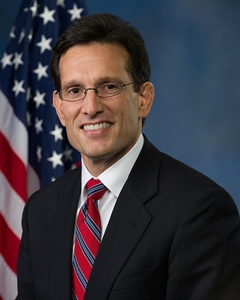 House Majority Leader Eric Cantor suffered a bruising primary defeat by tea party challenger Dave Brat on June 10.
House Majority Leader Eric Cantor suffered a bruising primary defeat by tea party challenger Dave Brat on June 10.
Strategists say Cantor’s 11 percentage point loss was due to a lack of field effort, fueled by overconfidence in his path to victory. Many Republicans felt Cantor had become too removed from his district, mired in Washington infighting and too focused on the national stage.
According to historians, no House leader of Cantor’s rank has ever been defeated in a primary.
June 11, 2014 •
15,245 Questions Answered!
In the monthly State and Federal Communications staff meetings, each department provides an update of what’s new so the entire staff can get a picture of what each department is up to. One of the things the Research Department likes […]
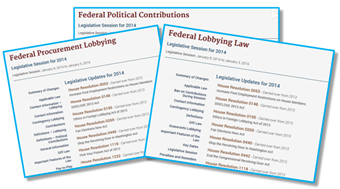 In the monthly State and Federal Communications staff meetings, each department provides an update of what’s new so the entire staff can get a picture of what each department is up to. One of the things the Research Department likes to share with the staff is statistics that provide some insight as to the volume of information we track and update.
In the monthly State and Federal Communications staff meetings, each department provides an update of what’s new so the entire staff can get a picture of what each department is up to. One of the things the Research Department likes to share with the staff is statistics that provide some insight as to the volume of information we track and update.
The information on our website is contained in a database, which contains 223 individual questions that need to be addressed in each of the more than 300 jurisdictions available on our website. In round numbers, this means there are roughly 70,000 individual “chunks” of data in our database, which may be as short as one word or as long as the approximately 3,900 words it takes to explain California’s complex campaign finance reporting system. One interesting statistic we like to share in each meeting is the number of these individual questions “touched” since the last staff meeting, as a rough measure of how many pieces of information were updated on the website. Between our April 21and May 29 staff meetings, the Research Department updated 15,245 questions in our database, either as part of the normal review process or as part of updates made to the website due to changed information, such as the passage of a new bill or a new phone number for a contact. Mind you, not every question processed through the system gets changed, as it is sometimes necessary to look at a question just to verify the information, but this statistic gives a good idea of the volume of information being looked at during the period in question.
Another interesting statistic involves the number of what we call “supplemental documents,” that is, the documents you can find in under the “Statutes, Regulations, Forms…” link on our website. These are the statutes, opinions, guides, and forms we keep on our website as both a quick reference and a ready source of forms to assist with registration and reporting. As of our May 29 meeting, we had 5,814 such documents available on our website. In the 12 months preceding the meeting, 2,022 of those documents had been updated.
June 10, 2014 •
California Senate Resolutions Strengthen Ethics Laws
The Senate has passed resolutions to tighten ethics laws by creating a new position of ethics ombudsman, installing protections for whistleblowers, and banning the raising of campaign funds during August, the last month of the legislative year. A bill to […]
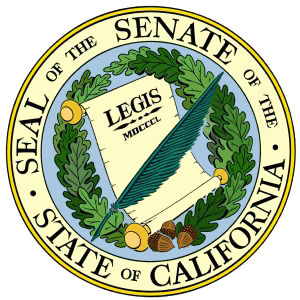 The Senate has passed resolutions to tighten ethics laws by creating a new position of ethics ombudsman, installing protections for whistleblowers, and banning the raising of campaign funds during August, the last month of the legislative year. A bill to extend the fundraising blackout period to the Assembly fell four votes short of the two-thirds needed for approval.
The Senate has passed resolutions to tighten ethics laws by creating a new position of ethics ombudsman, installing protections for whistleblowers, and banning the raising of campaign funds during August, the last month of the legislative year. A bill to extend the fundraising blackout period to the Assembly fell four votes short of the two-thirds needed for approval.
The Senate also approved an amended bill to regulate travel gifts and the use of campaign funds. Senate Bill 831 initially would have barred acceptance of gifts of travel worth more than $8,000, but was amended to only require nonprofit groups paying for legislators’ travel to disclose donor information.
At its June 18 meeting, the Hawaii State Ethics Commission will consider whether to issue guidance to state legislators regarding the use of their annual legislative allowance. The state Constitution provides the allowance for each legislator to cover incidental expenses […]
 At its June 18 meeting, the Hawaii State Ethics Commission will consider whether to issue guidance to state legislators regarding the use of their annual legislative allowance. The state Constitution provides the allowance for each legislator to cover incidental expenses connected with legislative duties. The funds may not be used for any personal expenses including, but not limited to, gifts, campaign contributions, or food and beverages related to social activities and events.
At its June 18 meeting, the Hawaii State Ethics Commission will consider whether to issue guidance to state legislators regarding the use of their annual legislative allowance. The state Constitution provides the allowance for each legislator to cover incidental expenses connected with legislative duties. The funds may not be used for any personal expenses including, but not limited to, gifts, campaign contributions, or food and beverages related to social activities and events.
Several legislators filed complaints with the commission accusing colleagues of using the annual allowance for personal reasons. After reviewing information provided by Senate and House clerks, commission staff identified several disbursements appearing unrelated to a legislator’s official duties.
Congressional leadership argues the responsibility for monitoring the use of the legislative allowance rests with the Legislature. Commission staff, on the other hand, believes monitoring the use and sanctioning the misuse of the allowance falls within the reach of the State Ethics Code.
A detailed list of recommendations for discussion can be found on the Ethics Commission website. Because legislative allowance funds are public funds, the Commission will accept public comments and testimony concerning the use of said funds.
June 9, 2014 •
Wyoming Reconsidering New Contribution Limits
Lawmakers are reconsidering a new law placing caps on political action committee (PAC) spending in state elections. A majority of the Joint Corporations, Appropriations, and Political Subdivisions Interim Committee voted to order its nonpartisan staff to draft a bill repealing […]
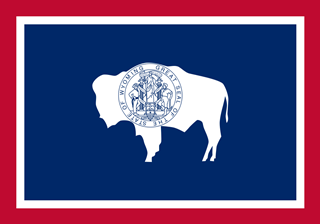 Lawmakers are reconsidering a new law placing caps on political action committee (PAC) spending in state elections. A majority of the Joint Corporations, Appropriations, and Political Subdivisions Interim Committee voted to order its nonpartisan staff to draft a bill repealing a section of state law before it becomes effective on January 1, 2015.
Lawmakers are reconsidering a new law placing caps on political action committee (PAC) spending in state elections. A majority of the Joint Corporations, Appropriations, and Political Subdivisions Interim Committee voted to order its nonpartisan staff to draft a bill repealing a section of state law before it becomes effective on January 1, 2015.
If not repealed, the law will cap direct or indirect PAC contributions at $7,500 to any statewide candidate and $3,000 to any other candidate. Currently there is no limit for PAC contributions.
In a separate measure, the committee ordered a draft bill to repeal the state’s aggregate contribution limits, which conflict with the U.S. Supreme Court’s ruling in McCutcheon v. Federal Election Commission.
On Thursday, June 5, Colorado Deputy Secretary of State Suzanne Staiert issued an agency decision in response to Citizens United’s petition for declaratory order. Citizens United requested its upcoming documentary be excluded from the definition of reportable electioneering communication by […]
 On Thursday, June 5, Colorado Deputy Secretary of State Suzanne Staiert issued an agency decision in response to Citizens United’s petition for declaratory order. Citizens United requested its upcoming documentary be excluded from the definition of reportable electioneering communication by classifying it as one of the constitutional exemptions. The secretary of state found the communication does not fall within any exemptions and there is no general press-entity exemption to the definition of electioneering communication.
On Thursday, June 5, Colorado Deputy Secretary of State Suzanne Staiert issued an agency decision in response to Citizens United’s petition for declaratory order. Citizens United requested its upcoming documentary be excluded from the definition of reportable electioneering communication by classifying it as one of the constitutional exemptions. The secretary of state found the communication does not fall within any exemptions and there is no general press-entity exemption to the definition of electioneering communication.
As Citizens United engages in communication for the primary purpose of influencing elections, it is exactly the type of entity to which reporting requirements apply. To rule otherwise would defeat the purpose of state campaign finance law and disregard the rationale behind full disclosure.
Moreover, the secretary of state found it does not have the authority to create a general press exemption to campaign finance reporting requirements. Although the Federal Election Commission applies such an exemption for Petitioner at the federal level, the secretary of state lacks the authority to import the FEC’s analysis and decision. Therefore, Petitioner’s remedy at the state level lies with courts in the form of litigation, with the legislature in the form of referendum, or with the people in the form of initiative.
June 6, 2014 •
South Carolina Senate Has Work For Veto Session
Lawmakers adjourned the regular session on Thursday, June 5, 2014, but will return for a veto session on June 17. House Bill 3945, the ethics reform bill, passed the House, but was filibustered by Sen. Lee Bright. The Senate will […]
 Lawmakers adjourned the regular session on Thursday, June 5, 2014, but will return for a veto session on June 17. House Bill 3945, the ethics reform bill, passed the House, but was filibustered by Sen. Lee Bright. The Senate will have a final opportunity to vote on the measure during the veto session.
Lawmakers adjourned the regular session on Thursday, June 5, 2014, but will return for a veto session on June 17. House Bill 3945, the ethics reform bill, passed the House, but was filibustered by Sen. Lee Bright. The Senate will have a final opportunity to vote on the measure during the veto session.
Gov. Nikki Haley confirmed on Twitter she would sign the bill if passed.
The Senate is also expected to select a new President Pro Tem, who will automatically be promoted to lieutenant governor and replace retiring Lt. Gov. Glenn McConnell. Former President Pro Tem John Courson resigned to avoid becoming lieutenant governor.
June 6, 2014 •
News You Can Use Digest – June 6, 2014
National: Betting on a Brand When Politics Is the Family Business New York Times – John Harwood | Published: 5/29/2014 Surveys have shown past experiences with a product or memories of family and friends using it shaped consumers’ buying decisions. […]

National:
Betting on a Brand When Politics Is the Family Business
New York Times – John Harwood | Published: 5/29/2014
Surveys have shown past experiences with a product or memories of family and friends using it shaped consumers’ buying decisions. Democrats’ hopes of holding the U.S. Senate this fall rest significantly on the political equivalent of that “brand capital.” In four states that usually lean Republican, Democrats will be running candidates from families with multigenerational records of political success. If at least two of the four legacy candidates can eke out victories, the Democrats’ chances of holding the Senate will be better than even.
‘Colbert Report’ Taught Viewers More about Super PACs than Cable News
U.S. News & World Report – Tierney Sneed | Published: 6/2/2014
Leading up to the last presidential election, the faux conservative host of ‘The Colbert Report” created a super PAC and a secretive “dark money” group on his show. Viewers who saw those satirical segments were significantly better informed about the role of money in politics than viewers of any other news channels, according to the Annenberg Public Policy Center. Stephen Colbert created Americans for a Better Tomorrow, Tomorrow with the help of former FEC Chairperson Trevor Potter. “The Colbert Report” was particularly effective because of the detail the show went into, and the narrative arc of its examination that lasted many months throughout the election cycle.
Federal:
Politico – Anna Palmer and Byron Tau | Published: 6/4/2014
After Patton Boggs’ recent merger with Squire Sanders was finalized, so many lawyers and lobbyists fled the firm that moving trucks lined up in front of its K Street headquarters. One Patton Boggs insider estimated 200 attorneys, lobbyists, and staff, through layoffs, buyouts, and departures, will have left the firm by the time everything settles down. At its peak in recent years, the firm had about 500 lawyers and lobbyists.
Washington Post – Catherine Ho | Published: 6/1/2014
The lobbying industry, once dominated by a handful of big, powerful personalities, has given way to a broader and more grassroots business that has more voices – and must influence more decision makers – than ever before. The Washington Post highlighted some of the lobby firms that are shaking things up, either by starting anew, transforming their structure to do business differently, or experimenting with new ways to broker change through social media and other outlets.
From the States and Municipalities:
Alabama – After 17 Years at Helm, Executive Director Announces Retirement from Alabama Ethics Commission
Columbus Republic – Philip Rawls (Associated Press) | Published: 6/4/2014
Alabama Ethics Commission Executive Director James Sumner is retiring on October 1, ending more than 17 years as the agency’s top staff member. Sumner made note of his efforts to strengthen the ethics code, which culminated in lawmakers passing legislation that included reducing the amount a lobbyist could spend on entertaining a public official, giving subpoena power to the Ethics Commission, and guaranteeing an annual appropriation to the commission so it would not be subject to legislative whims.
California – Indicted Yee Gets a Quarter-Million Votes for Secretary of State
Los Angeles Times – Phil Willon | Published: 6/4/2014
Charges of corruption and gun-running conspiracy notwithstanding, almost 10 percent California voters thought suspended state Sen. Leland Yee should become secretary of state. He was arrested in March and indicted several days later as part of a sweeping investigation into organized crime. Yee had dropped out of the race, but not before a deadline to remove his name from the ballot had passed.
Colorado – Colorado Mulls Forcing Citizens United to Disclose Donor Identities
Colorado Independent – Tessa Cheek | Published: 6/4/2014
Political-advocacy group Citizens United is asking for its upcoming film on Colorado politics to be exempt from the state’s campaign finance laws. The group plans to release the film shortly before the upcoming November election, containing images of and messages about Colorado politicians, though it will not expressly advocate a position on races. If the group gains status as a news media organization, it will not be required to disclose its donors or file campaign finance information around the launch and promotion of its film.
District of Columbia – Former D.C. Council Member Michael A. Brown Gets More Than 3 Years in Bribery Case
Washington Post – Ann Marimow and Mike DeBonis | Published: 5/29/2014
Former District of Columbia Councilperson Michael Brown was sentenced to more than three years in prison for taking bribes in an undercover FBI sting, a comparatively stiff sentence from a judge who said “we cannot have city government run this way.” In the sting operation, Brown took $55,000 in cash payments, handed to him in rolls and stacks of $100 bills transmitted in coffee mugs and duffel bags. The undercover FBI agent was posing as a businessperson seeking preferential treatment on government contracts.
District of Columbia – Vultures on K Street? Yes, Birds of a Feather Flock Together
Washington Post – Theresa Vargas | Published: 6/2/2014
Tell people two vultures have made a home at the intersection of K and 11th streets in Washington, D.C. and they will likely ask the same question Charlie Dewitt did. “The bird variety?” he wondered. K Street is renowned for office buildings filled with highly paid, powerful lobbyists who, along with others in the city’s political food chain, are often called scavengers – and worse. “We have vultures and turkeys and other kinds of creatures here,” joked Dewitt, a lobbyist who has worked in Washington for 25 years.
Maine – Maine Nixes Cap That Limits How Much Individuals Can Give to Campaigns
Lewiston Sun Journal – Christopher Cousins (Bangor Daily News) | Published: 6/4/2014
The Maine Commission on Governmental Ethics and Election Practices will not enforce the state’s $25,000 aggregate limit on campaign contributions by individuals, based on a recent U.S. Supreme Court decision. The change means anyone can donate as much as they want across a range of candidates, though caps on how much each campaign can receive from an individual remain in place. “The commission has determined that it will not enforce the … aggregate limit … during 2014 unless and until it receives further guidance from the … Legislature or a court …,” according to the opinion.
New York – Ex-Brooklyn Prosecutor Charles J. Hynes Accused of Misuse of Funds
New York Times – Stephanie Clifford and William Rashbaum | Published: 6/2/2014
A report by New York City’s Department of Investigation accuses former Brooklyn District Attorney Charles Hynes of using money seized from drug dealers and criminal defendants to pay for a political consultant. Barry Kamins, the administrative judge for the city’s criminal courts, was also implicated in the case. The report said Kamins violated the judicial code of ethics by advising Hynes on his campaign, offering legal advice, and discussing matters the district attorney’s office was actively prosecuting.
North Carolina – Patrick Cannon Pleads Guilty to Corruption Charge
Charlotte Observer – Ely Portillo and Elizabeth Leland | Published: 6/3/2014
Former Charlotte Mayor Patrick Cannon pleaded guilty to honest services wire fraud, which carries a sentence of up to 20 years in prison and a $250,000 fine. An FBI sting recorded him accepting more than $48,000 in cash, airline tickets, a hotel room, and the use of a luxury apartment from undercover agents posing as estate developers who wanted to do business in the city. Cannon was arrested on March 26 and resigned the same day, less than six months after taking office.
South Carolina – SC Lawmakers Agree on Ethics Reform but ‘Most Important Part … Not Getting Done’
The State – Jamie Self | Published: 6/4/2014
A conference committee in the South Carolina Legislature agreed to drop a proposal to establish an independent commission to investigate ethics violations. The compromise reform bill, which is expected to be approved before the legislative session adjourns, raises the annual lobbyist registration fee from $100 to $200. Super PACs would be required to disclose their top five donors and any donor who gives more than $10,000, among other provisions.
Utah – Johnson: Swallow had me launder donations to Lee’s campaign
Salt Lake Tribune – Robert Gehrke | Published: 6/4/2014
Indicted businessperson Jeremy Johnson told investigators he helped launder tens of thousands of dollars to U.S. Sen. Mike Lee’s 2010 campaign at the request of former Utah Attorney General John Swallow, according to an affidavit. Johnson said gave about $50,000 to other people who then donated to Lee’s campaign, circumventing election law that sets maximum individual donations to candidates.
West Virginia – Ethics Commission Fires Executive Director
Charleston Daily Mail – Dave Boucher | Published: 6/5/2014
The West Virginia Ethics Commission fired Executive Director Joan Parker after a lengthy executive session. Commission members gave no reason for their decision. “If you, commissioners, choose to end my employment, I will leave with my head held high knowing that throughout my tenure I have dedicated my efforts to maintaining the integrity of the Ethics Commission and have done everything within my power, even when it was unpopular, to promote compliance with the ethics act,” Parker said before the vote.
 State and Federal Communications produces a weekly summary of national news, offering more than 80 articles per week focused on ethics, lobbying, and campaign finance.
State and Federal Communications produces a weekly summary of national news, offering more than 80 articles per week focused on ethics, lobbying, and campaign finance.
News You Can Use is a news service provided at no charge only to clients of our online Executive Source Guides, or ALERTS™ consulting clients.
State and Federal Communications, Inc. provides research and consulting services for government relations professionals on lobbying laws, procurement lobbying laws, political contribution laws in the United States and Canada. Learn more by visiting stateandfed.com.

